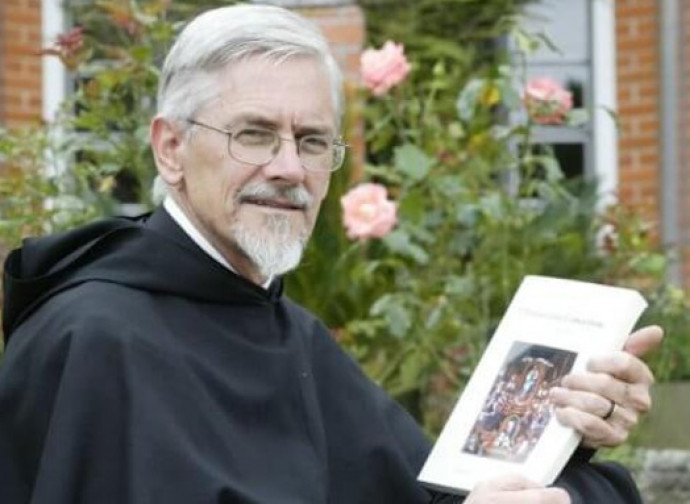Clodovis Boff to Latin America bishops:Say something Catholic
Father Clodovis is the brother of the more famous Leonardo Boff, a leading exponent of liberation theology. However, he has changed his ways and is asking the Latin American episcopate to stop talking about social issues and return to talking about Christ and proclaiming salvation.

Father Clodovis Boff, of the Servants of Mary and brother of Leonardo Boff — one of the best-known exponents of liberation theology — wrote an open letter to Latin American and Caribbean bishops. This unusual and courageous gesture immediately made its way around the world, as tends to happen when someone speaks clearly and says things that are obvious yet overlooked by most.
The letter, dated June 15, was written for the conclusion of the 40th General Assembly of CELAM (the Council of Bishops of Latin America and the Caribbean) and the reading of the final document summarizing the assembly's work.
Boff's central observation is that the document does not speak of God or Christ, who are mentioned only in passing. As has been the case since at least the Medellín Assembly in 1969, the document limits itself to addressing social and economic challenges and envisioning a church that is "merciful, synodal, and outgoing . . . a church that listens and learns from the light that the Spirit offers to all God's people, allows itself to be challenged by the cries of the people, and has the courage to commit itself to them." "Dear elder brothers," observes Father Clodovis, "don't you see that this music is becoming boring? When will you give us the good news about God the Father, Christ, and his Spirit? About grace and salvation? About conversion of heart and meditation on the Word? About prayer and adoration, devotion to the Mother of the Lord, and other similar topics? When will you finally announce a truly religious and spiritual message to us?" I read your list of today's "cries" and "challenges," and I see that it is nothing more than what journalists and sociologists commonly say. It is useful to recall that the Church is, above all, a 'sacrament of salvation' and not merely a social institution, progressive or not. According to Boff, the consequences are: "Our Church is losing its sheep. We see empty churches, seminaries, and convents around us. In Latin America, seven or eight countries no longer have a Catholic majority. Brazil itself is well on its way to becoming 'the largest ex-Catholic country in the world.'
In summary, the letter denounces the secularizing trend within the Church in Latin America, stating, "You always repeat the same refrain: social, social, social. You have been doing this for more than fifty years," produced above all by liberation theology. Leonardo Boff's brother had distanced himself from this theology long ago. From the beginning, liberation theology involved the secularization of the Christian faith, consistent with the new post-conciliar theology, particularly in Germany. Harvey Cox and Johann Baptist Metz legitimized secularization by presenting it as Christian and irreversible. The "social, social, social" referenced by Father Clodovis originated there. Therefore, one could argue that the secularization of faith, reduced to a commitment to liberation, and the reduction of theology to "political theology" are the logical conclusions of these premises.
John Paul II and Benedict XVI attempted to correct this approach. The former attended the CELAM conference in Puebla in 1979 and proposed the social doctrine of the church as an alternative to liberation theology. He also attended the assembly in Santo Domingo in 1992. In fact, the final document contained significant corrections. In May 1996, Cardinal Ratzinger gave a lecture in Guadalajara, Mexico, entitled "Faith and Theology Today." In it, he discussed the secularizing effect of liberation theology. He argued that it had desacralized Latin American society and favored relativism as the dominant philosophy: "Redemption becomes a political problem." According to him, this theology left a devastated landscape, demanded salvation from that which needed to be saved, and taught the faithful to doubt in accordance with the Marxist philosophy of suspicion. Cardinal Ratzinger, who later became Pope Benedict XVI, attended the Aparecida Assembly in 2007, where he challenged the principle of liberation theology. He argued that the theological focus should be on the apostolic faith, not on the poor or liberation practices. Following this advice could have changed the course of liberation theology.
The critical points made in Father Clodovis's letter to his brother bishops have a meaning that goes beyond the already broad context of Latin America. The new theology, of which liberation theology is only one aspect, has replaced history with nature and truth with practice, as Ratzinger said in Guadalajara. This new theology is secularized and secularizing. As a result, almost all episcopal conferences, not only CELAM, albeit with necessary differences, speak of man rather than God. Consider the messages from the Italian Conference, for example. Even the late Pope Francis, despite his periodic reminders that the Church is not an NGO, had largely embraced this secularized perspective on faith. This is precisely where the denunciation's power lies in this letter, mild in expression by a Servite but demanding in expressing a need for conversion.
